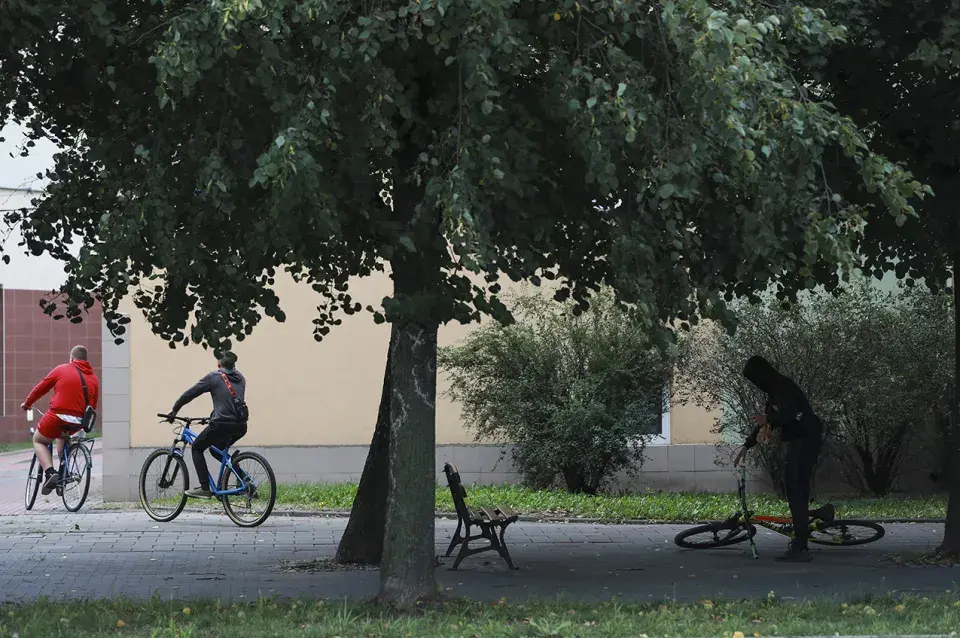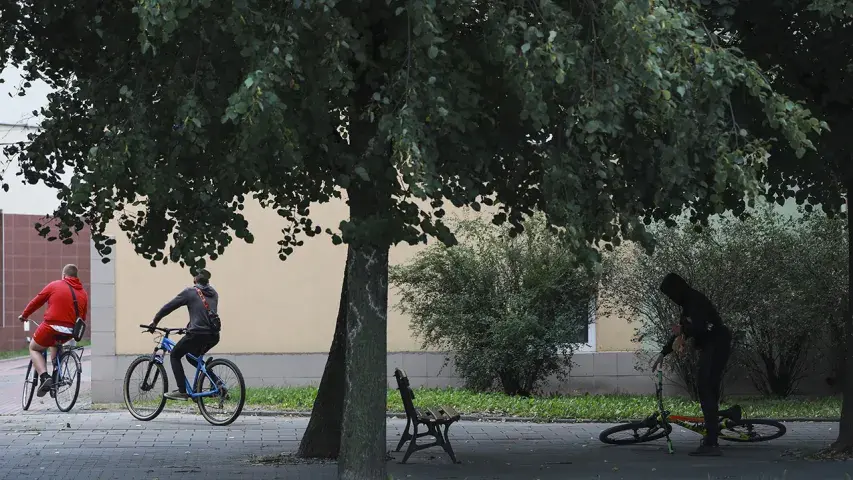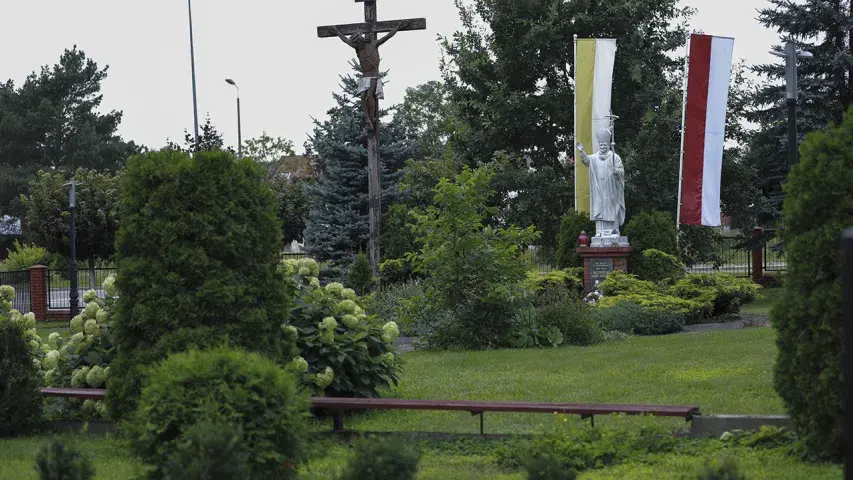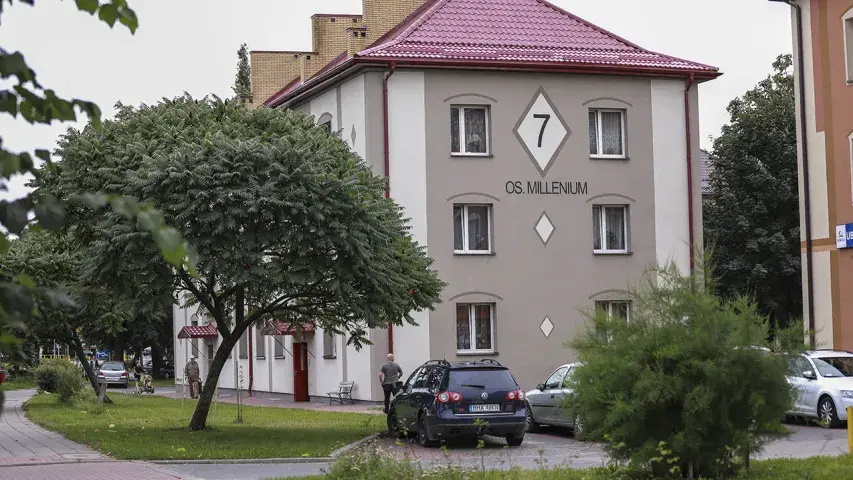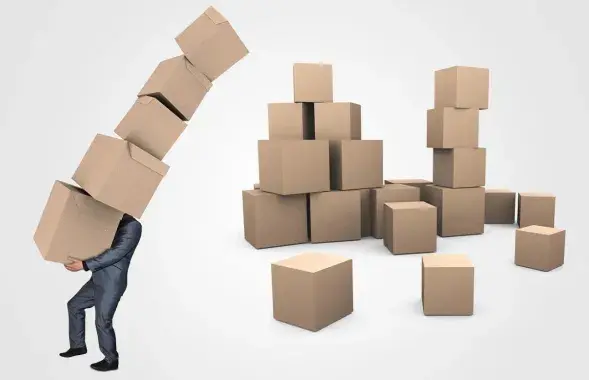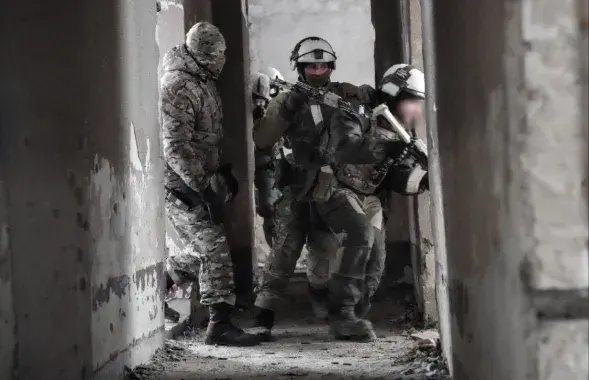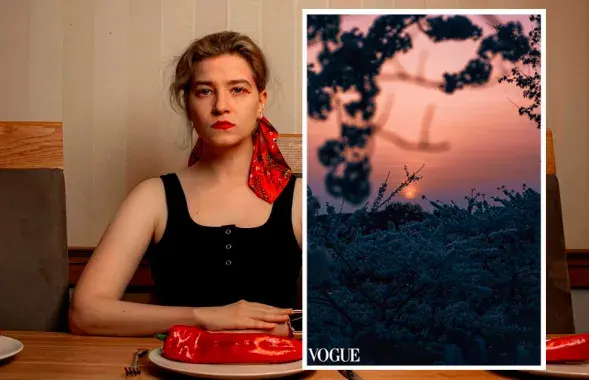How residents in eastern Poland react to Belarus-triggered migrant crisis
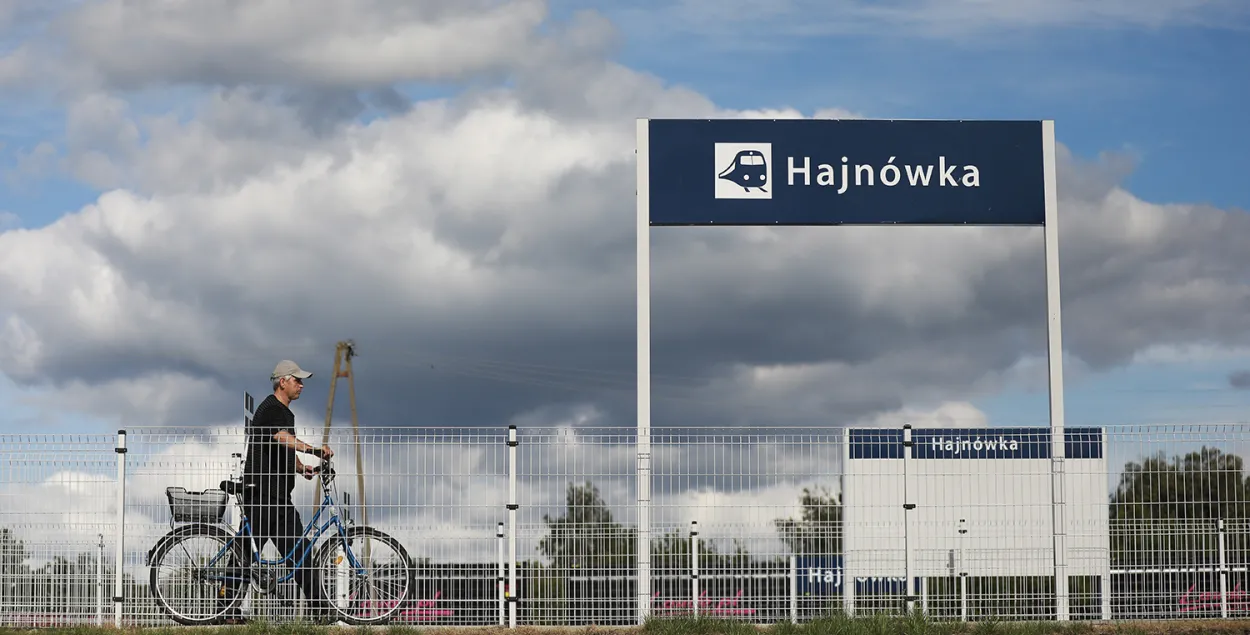
Hajnowka is just over 20 kilometers away from the border with Belarus / Euroradio
"Why should we think about migrants? We don't need any migrants," Lyudmila says. We are at the market in the town of Hajnówka. Lyudmila, like many people, comes here in the morning and sells raspberries. There aren't many buyers. We didn't see any in an hour. Perhaps this is why Lyudmila agreed to talk with us. She asked us not to take pictures of her, because she is shy.
"We have nothing against the Belarusians, Ukrainians," the woman assured us." But if they are Muslims, we don't need them."
"You know what happened in Afghanistan? Probably, there will be more migrants from there now."
"Well, there will be more," Lyudmila thinks for a while. "Dangerous people. Look what's happening in France, in Belgium, in Germany. They don't want to work, they want to live well."
She repeats again that Belarusians and Ukrainians are welcome here:
"We are, in fact, Belarusians. Orthodox. And the Muslims... We don't really want them here... They don't want to work."
"But if they wanted to work, would you mind?"
"Well, if they didn't do anything wrong... But when Chechens came to Bialystok -- they set doors on fire etc. But I don't know, I'm not interested in politics. That was before. I don't know about now."
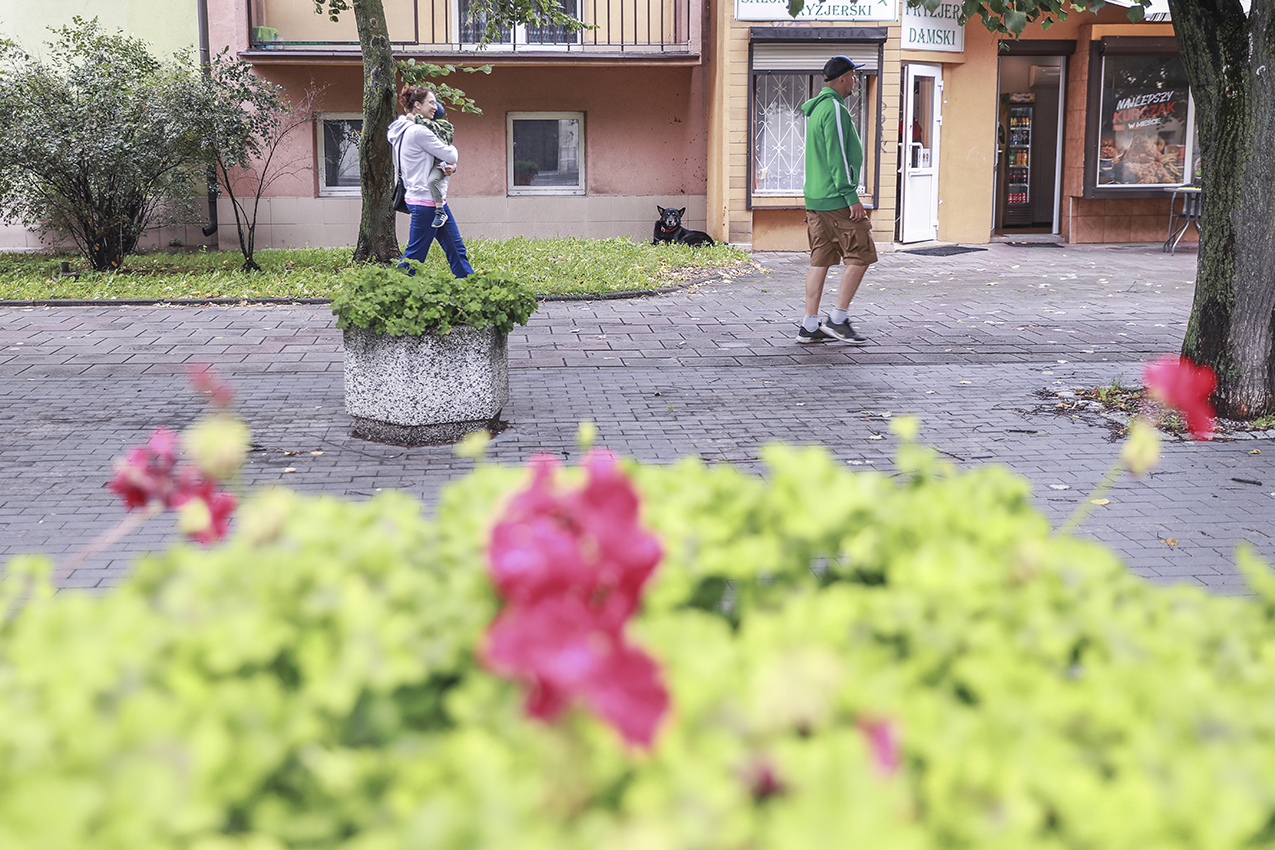
Hajnowka is about twenty kilometers away from the Belarusian border. Many people here consider themselves Belarusians. We speak a mixture of Polish, Russian, and Belarusian with the locals, but that's with the older generation. For example, with Yura -- he has been trading here at the market for many years, and he has a large assortment: carrots, cucumbers, peppers, potatoes... By the way, they are cheaper than in Belarus. He says his family helps him grow everything. It is enough to live on, and after the authorities started giving subsidies to farmers for fuel, he even stopped going to Belarus for diesel. In other words, he is happy with his life.
"It's not good that Lukashenka started letting these migrants from Asia come to us," said Yura. "Is he doing it to spite us?"
"I do not know."
"Our people want to help Poles in Belarus... Lukashenka doesn't like it. So he does that."
"Are you afraid that there will be more migrants?"
"Why do we need more? Of course, this isn't good. They don't come here to work; they just want to go further, to the West."
Interested in the conversation, Yura's friend comes up -- he says his name is Vanya. He stands there, nodding -- completely agrees with his buddy in his assessment of what is happening.
"Don't you feel sorry for them?"
"Why should we?" Yura smiles. "They are not poor people. Poor people don't go anywhere. And they pay thousands of dollars to go. It's all about the money. Even though I'm a regular simple man, but I understand everything... The poor don't go."
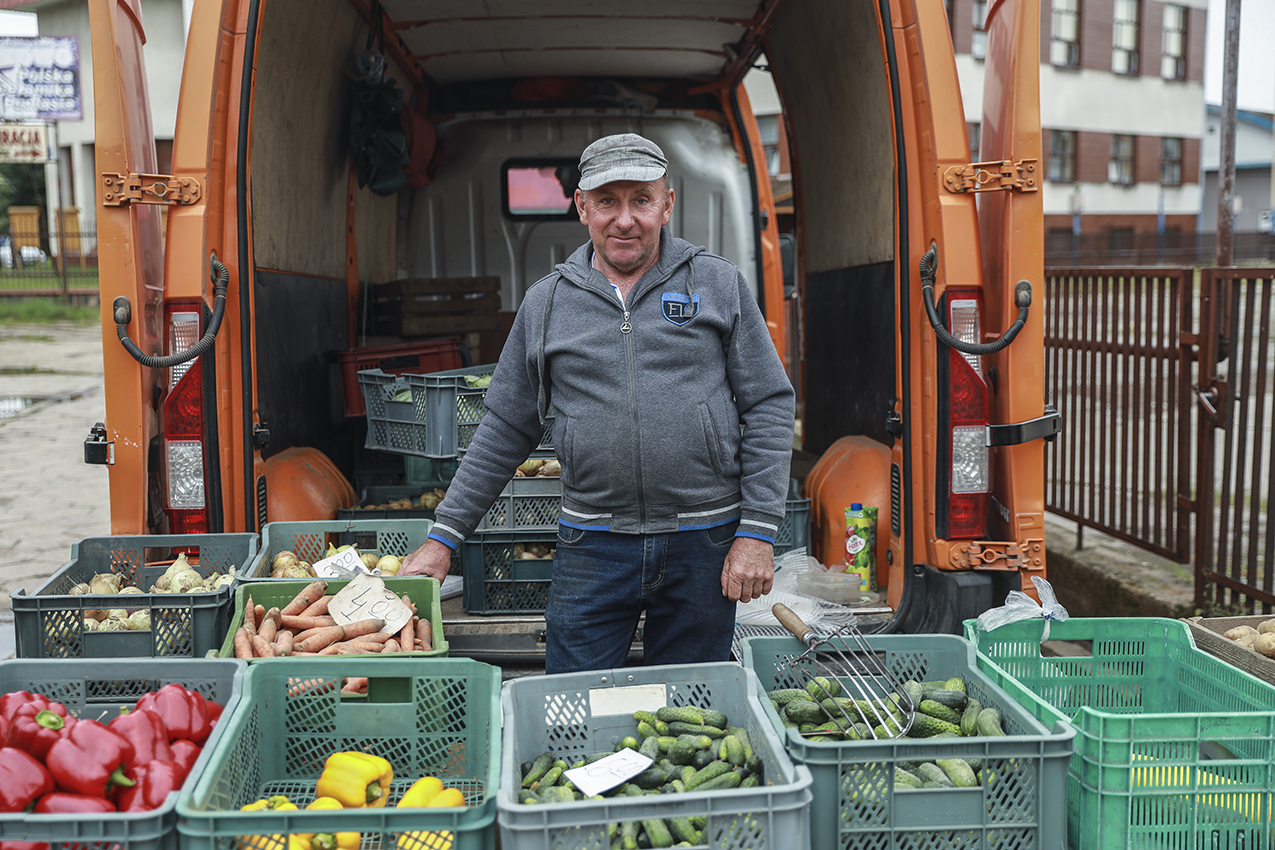
No migrants have been seen in the border areas so far. Yura explains it simply: Polish border guards work well. The locals learn about the "export of migrants" from local newspapers, sometimes discussing it with friends or family. Yura adds that he is "not interested in politics," but here it's more a question of security.
"Lukashenka shouldn't do that," Yura shakes his head again. Meanwhile, Vanya recollects how he used to go to Belarus.
"Those were the times, going to and fro, we all live close to each other. You brought something. We have friends there, acquaintances. And now there's a girl who got married to a Belarusian, but she can't enter Belarus! What is it all about?"
Despite a slight nostalgia for the old times ("We went to Maladzechna to trade in the early 90s, what a life that was!"), Yura and Vanya are happy with their country and their life. They do not live rich, but nobody disturbs them, and the level of living is acceptable.
Hajnowka is somewhat similar to the Belarusian district center: houses with four or five stories maximum, very few people, few young people. But it's also different: the houses are painted and well maintained not only in the center. The city has several supermarkets and a large Jysk store.
There's also a museum and a center of Belarusian culture. Several women with children enter it with us. There is a small souvenir shop: t-shirts with inscriptions in Belarusian, postcards, figurines. I ask the local shopkeeper about the situation with migrants, but he turns out to be the director of the center.
"I do not know much about it. I know that there are noticeably more migrants, I've seen them on the Internet," says Tomasz Tichoniuk. "So far, we haven't seen them anywhere here. There are Belarusians, Ukrainians, who go to work. Recently, after last year's election, there have been more Belarusians. There are also Indians, but they also go to work. And I haven't seen those migrants from the East yet."
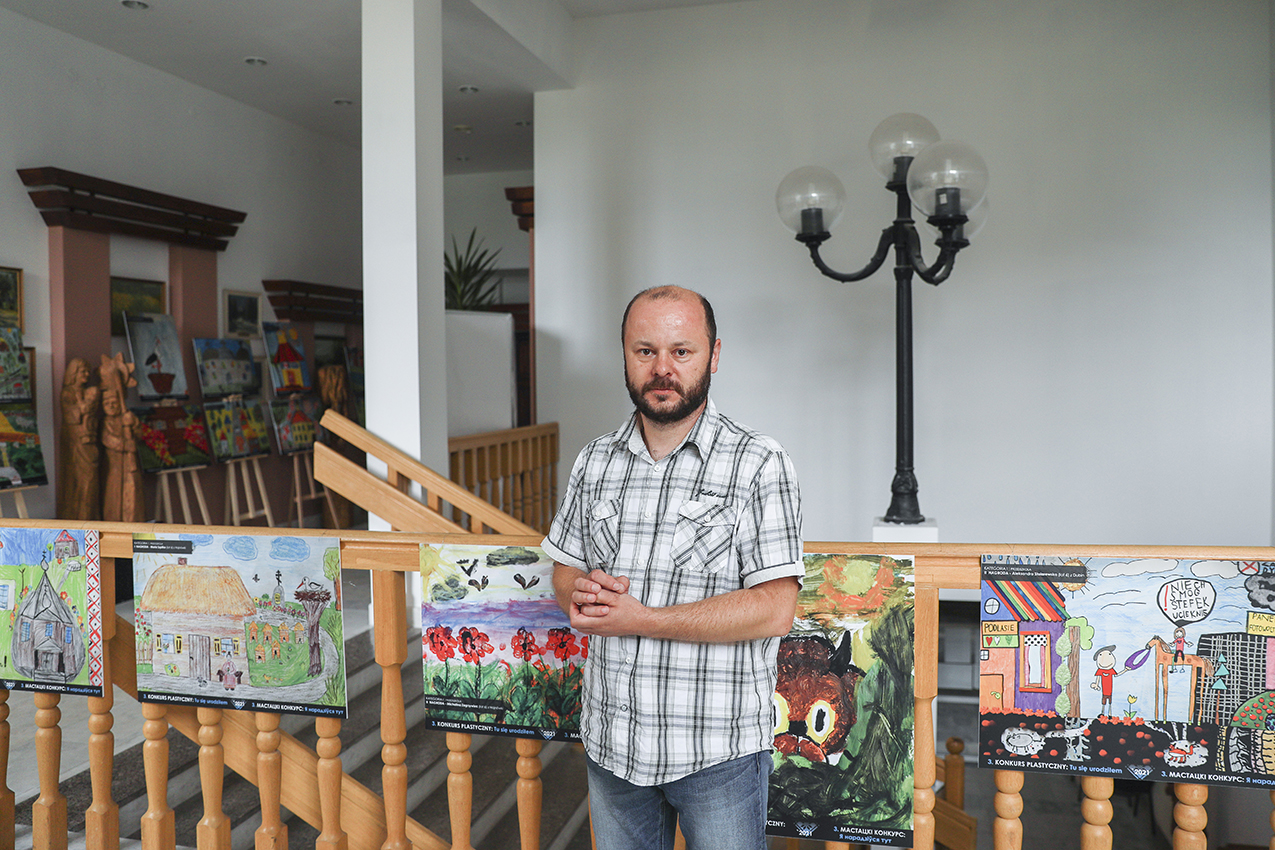
We get distracted: a woman comes up and asks where she can buy a ticket. Tomasz goes with her somewhere, locking up the shop before doing so. A few minutes later, he returns. I ask him how he thinks the locals would react if there were even more migrants and the authorities had to open new camps near the city.
"You see, Podlasie is a bit... I wouldn't say it's a closed region, but..."
"Like a country within a country?"
"Roughly speaking, you could say that. I think if there are more migrants, a lot of people will be a little afraid of them. Well, personally, I can't say right away whether I'm totally against it or totally support it. It's a very complicated thing. Seeing how the Belarusians and Ukrainians come, work, respect the local laws, try to speak Polish ... Especially since the Belarusians and Ukrainians are of the same faith, are also Slavs, have a lot in common. And there is a different culture, a different faith ... I think that many locals would be cautious. And now we are watching stories about it on TV, but it is as if the problem doesn't concern us... It was the same with the pandemic: we thought that China was far away and that the virus would never affect us. And then all of a sudden the whole of Europe, the whole world..."
The locals, Tomasz says, are generally open and tolerant people -- like true Belarusians. He shows us a part of the exhibition: wooden sculptures based on Belarusian motifs, a drawing contest for children and photographs for teenagers. A family passes by: they are looking at the exhibits. Tomasz smiles at them and says hello as if they have known each other for a long time. This is quite possible: the museum organizes events not only on its premises. For example, Tomasz travels around the villages and organizes various activities there: concerts, exhibitions, and so on. So he knows the locals. And he says that in some villages the population is up to 100% Belarusian.
That Hajnowka is a kind of "Belarus in Poland" is seen not only by the museum and the locals' ability to understand Belarusian. And not just the birches, which grow here in large quantities. But the phrase "I am not interested in politics" is very Belarusian in its essence. And you could hear it from so many people.
"Oh, I do not care about politics," says a pensioner with a bicycle. "We do not need these migrants, that's all. We're not rich as it is. My pension is small, I have to go to Warsaw to take care of the elderly, to earn something. And recently they found polyps in my stomach, so they sent me to a fee-based center... I don't need any migrants here."
She waves to us and walks on.

One of the local landmarks is an Orthodox church. It was built in the 1980s in the modernist style. You don't see such churches in Belarus. It's interesting for Poles to see, too.
At the church parking lot stops a family with three girls. They hastily eat buns from the bags and say they come from Warsaw. They know about the situation with migrants coming from Belarus.
"I think that people should be where they are safe. Of course, we have to make them feel safe at home. But if they're not safe there now, we need to help them," says the mother of the family.
In the park nearby, a group of teenagers rushes to hide their e-cigarettes when they see us. They refuse to be photographed, even after we promise to take the pictures without anything, which would annoy their parents.
"I've only heard about what happened in Afghanistan and how bad it's going to be for the women there now," the boy shrugs. He has nothing else to say about the migrants: he found out from me that they go through Belarus to Lithuania, Latvia and Poland by the hundreds.
Life in Hajnowka goes on as usual. Despite the Belarusian border being so close, the locals are not particularly worried about a possible influx of migrants.
"I am not worried about this at all," admits Paola, an employee of a gas station near the local railway station. "If they come, I don't mind. They might be safer here."
I enter the local kebab place to try my luck.
"I haven't heard anything about it, to be honest," Bikas says. "I heard something recently about migrants, but I don't know if they're illegal or not. But actually, I have nothing to say."
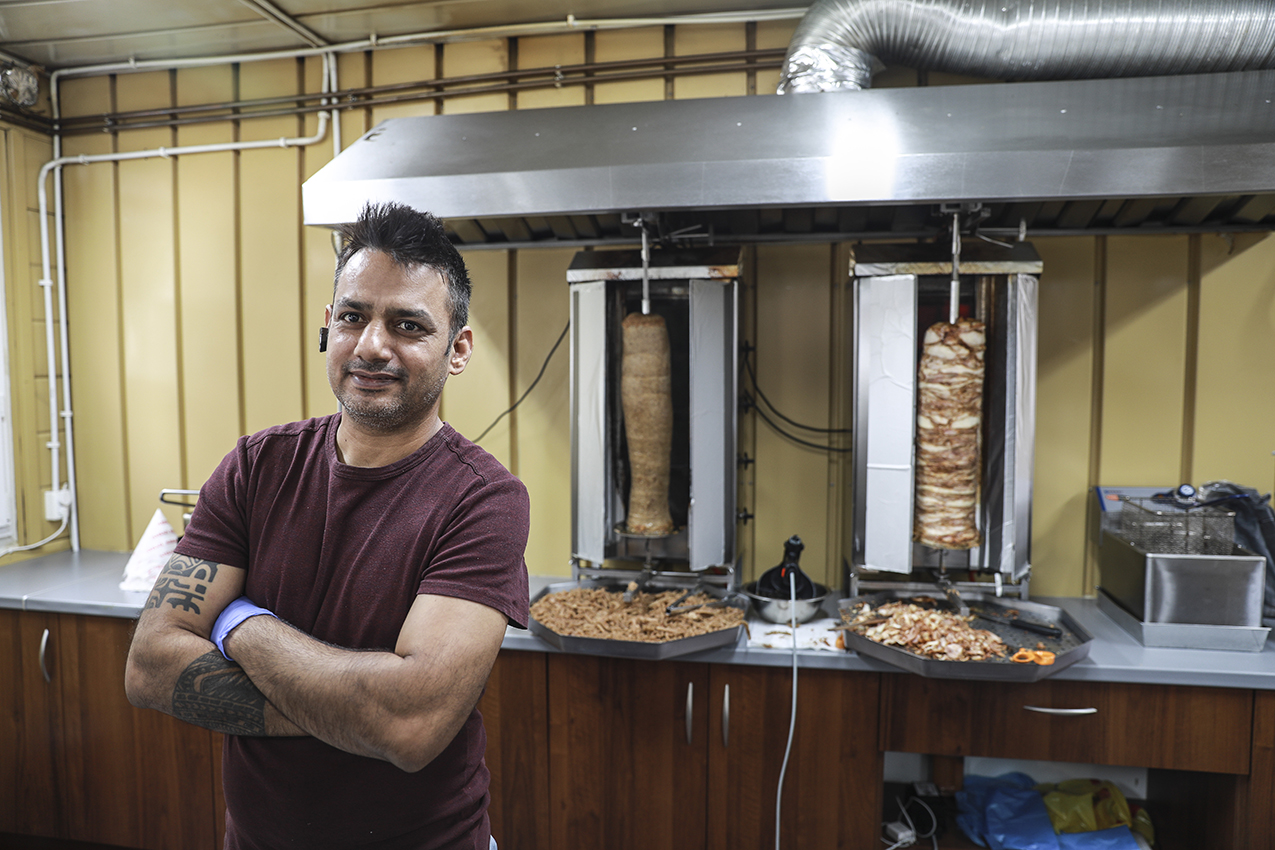
"How long have you been in Poland?"
"Three years. I came from India."
"Is it better here than at home?"
"It's the same."
"Why did you come?"
"My boss told me to come here. He has 12 cafes all over Poland. So I went to work," the Hindu man said.
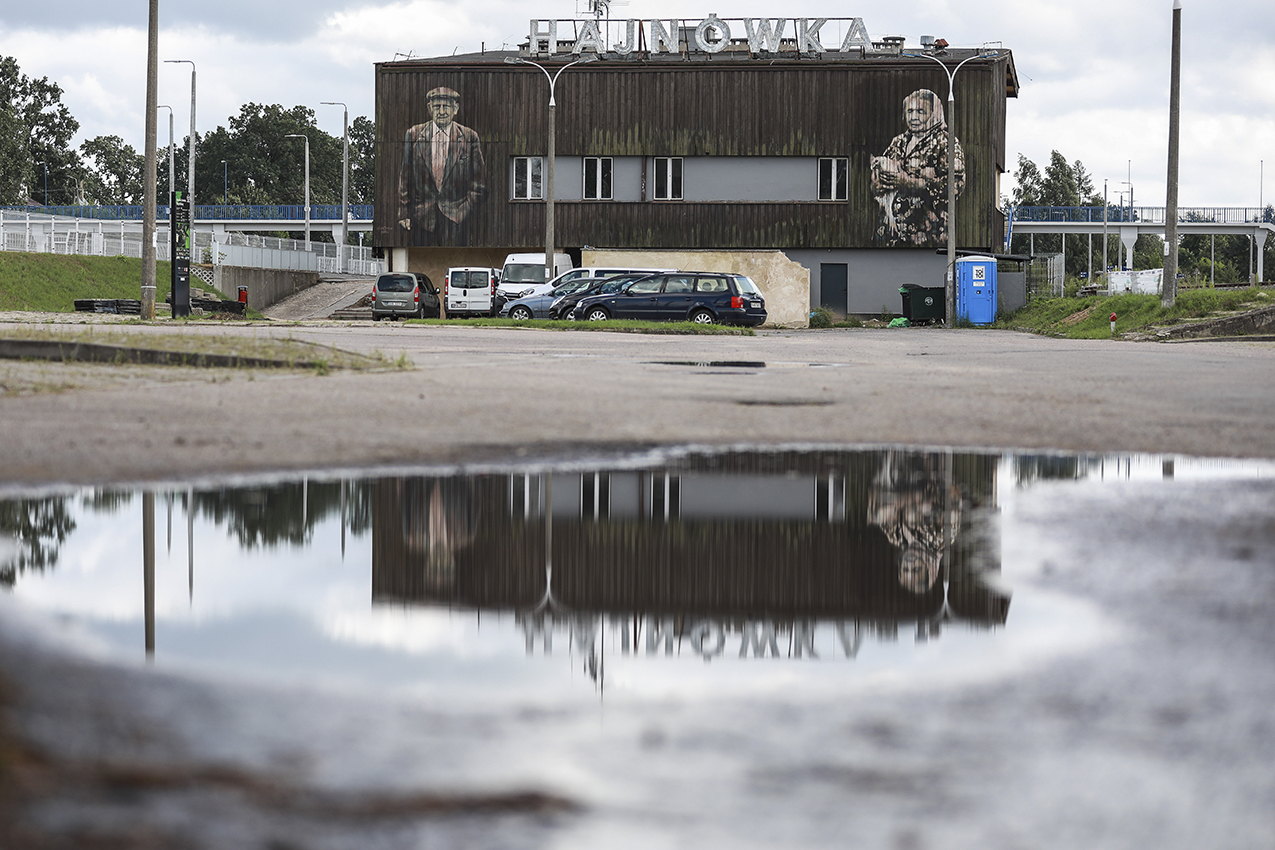
They say that the name of Hajnowka and the local region comes from the name of Hajným Heino, a guard who settled here back in the 18th century. And this name already has a new relevance: in fact, Hajnowski Powiat is one of the "guards" on the border between Poland and Belarus. So far, fortunately for the locals, there have been no issues with the influx of migrants here. But who knows what will happen tomorrow or in a week.
Done with the support of Mediaset
